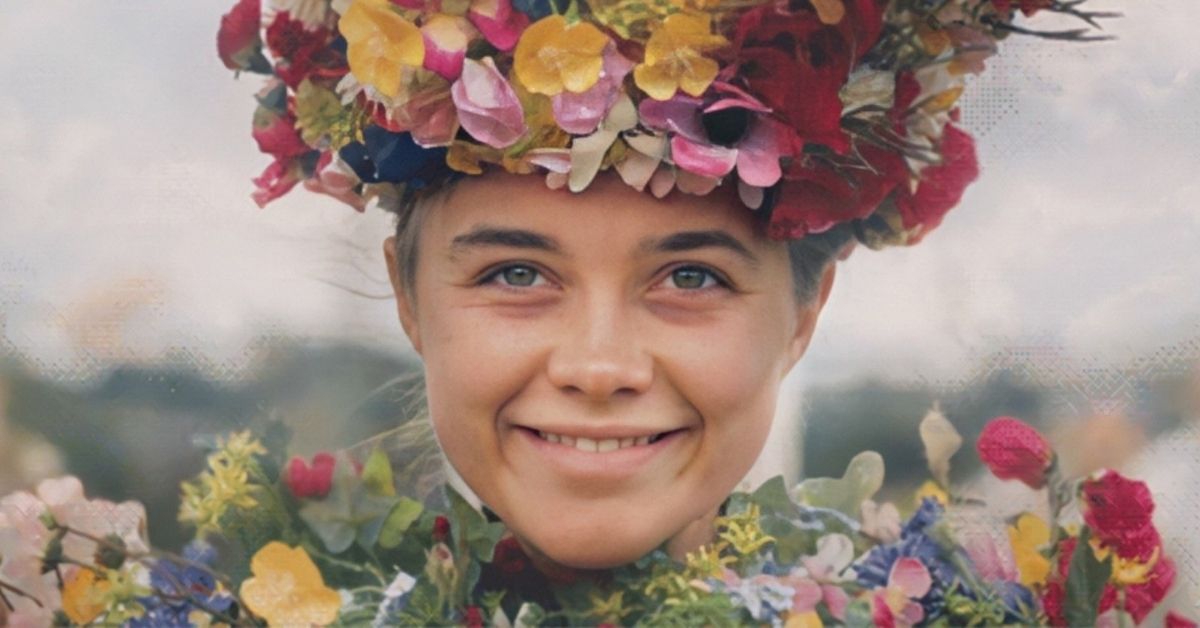
Ari Aster on Midsommar: 14 Interesting Quotes From Behind-The-Scenes
Dani tags along on her boyfriend’s bro trip to Sweden for a small village’s summer festival. But if writer/director Ari Aster’s prior film Hereditary is any indication, this isn’t exactly going to be a fun romp. Midsommar was an instant hit when it came out in 2019 and Aster has since had a lot of interesting things to stay about the making of this trippy folk-horror/fairy tale. Read on for a glimpse behind-the-scenes of Midsommar straight from the filmmaker. Warning: spoilers ahead.
On watching without expectations
I don’t really care about managing expectations. People can react however they like. I think it’s better to enter the film without any knowledge.
Ari Aster
On being pitched the idea for Midsommar
My first instinct was to pass on it, because it’s not necessarily a subgenre that I felt compelled to work in. But I was going through a breakup at the time, and I wanted to write a breakup movie.
Ari Aster
On working through personal trauma
My family has definitely undergone a lot of hardship. And when I was writing this script and Hereditary, I was certainly working through feelings. But that family was in no way a surrogate of my own. Ultimately, I find that I am often writing my way through some sort of personal crisis, which can be very therapeutic.
Ari Aster
On the origins of Dani
I’ve always seen Midsommar as a fairy tale. Orphaning your main character is the oldest fairy tale move in the book, and that was important for where the film goes.
Ari Aster
On using breakup movies as inspiration
Breakup movies were my biggest point of reference. And I really wanted to model the arc here on a high school romantic comedy. I love Clueless so much. That doesn’t work as a reference for Midsommar at all, but Clueless is a fucking masterpiece. But for me, the breakup movie that I thought about first is just my favorite of those, and that’s Albert Brooks’ Modern Romance, because it’s my favorite breakup movie ever.
Ari Aster
On the interplay of horror and fairytale
And for me, the way in was: for the guys in the movie, this is a folk-horror movie, but for the protagonist — for Dani, who I was kind of making a surrogate for myself — it’s a wish-fulfillment fantasy, it’s like a fairy tale.
Ari Aster
On writing the villagers
But when I was working with the Swedish actors, it was very important to me that [the villagers] not be menacing. They’re not foreboding. There’s nothing foreboding about them. They love this world. They believe in what they’re doing. They’re absolutely fair. They love each other. They are just completely in touch with themselves and their lives and each other. That’s all it was with them. There’s no mustache twirling or arched eyebrows.
Ari Aster
On Harga as a cult
No, I don’t see them as a cult. They might be. But I never called them a cult. For me, they are a community, and they are a family. I wanted them to exist as a place with a history and very clear laws and rules and traditions. I wanted all that to feel very rich, and very lived in.
Ari Aster
On wish-fulfillment
They are perfect for Dani right now. It’s a wish-fulfillment film in a way—she loses a family and gains one.
Ari Aster
On the art in the village
As I was gathering research with my production designer, Henrik Svensson, we went up to northern Sweden and to different farms that had houses that were centuries old. In a lot of these houses, every room is covered in paintings and murals. We based the aesthetic of the paintings on those.
Ari Aster
On the prophetic nature of the wall murals
I really just love layering my films with prophetic details that I hope encourage more active engagement on the part of the viewer. I like to put my exposition on the walls, as opposed to in characters’ mouths.
Ari Aster
On the real villain of Midsommar
So hopefully, you go in thinking that the Harga will be the villains. Then you realize that it was Christian, all along, because we’re with Dani. For her, he’s the foil. She wants to be close to him. Her dilemma is that she is alone in the world. And he’s the thing preventing that from being resolved, right? Because he is not allowing her in.
Ari Aster
On the original cut
The first cut of Midsommar was almost an hour and a half longer, so there’s a lot more of the village in that cut, because when you have to cut it down, that ends up becoming the stuff you could cut without losing anything from the story at the center. The original cut of this film is more meandering, in a way that I liked. It almost plays for a while as an anthropological study of this place, where we just live there for a while. Anyone there for the genre, for the action, would just be suffocating.
Ari Aster
On wanting the audience to laugh
I hope it’s wrenching and funny. And I hope you’re laughing at the end! Best-case scenario, you’re laughing at the end, and the laughs catch in your throat a little.
Ari Aster

